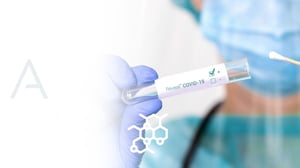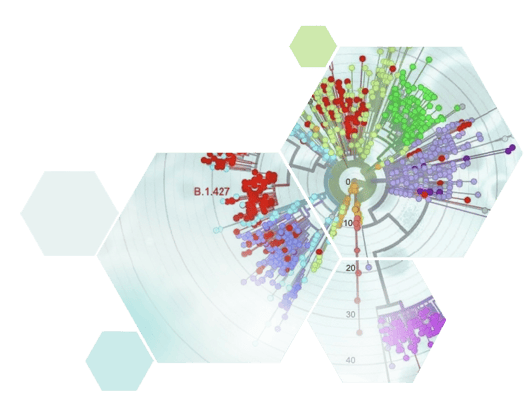
|
COVID-19 PCR testing solutions with Acutis Reveal™
Acutis Reveal™ COVID-19 Antibody Test detects both IgG and IgM antibodies. Our test is available to give your patients the answers they are looking for, with the expediency and accuracy that a crisis demands.

This test is a product of the same scientific and technical discipline Acutis has shown in the development of its Reveal™ infectious disease products.
The Acutis Reveal™ COVID-19 Antibody Test offers lower cut-off values than typical antibody tests while meeting our rigorous validation standards.
Acutis Reveal™ COVID-19 Antibody Test detects the IgG and IgM antibodies. Samples can be taken from either capillary draws via finger stick or standard venipuncture. Both methods are are familiar techniques, which ensure an easy and user-friendly collection procedure.
Note: All COVID-19 antibody testing requires a provider’s order and any such orders should only be issued when medical necessity for testing has been established.
Start testing with us today
COVID-19 Antibody Testing FAQ
demo.question.question1.answer1COVID-19 PCR (viral) tests are utilized to see if you are currently infected with the novel coronavirus. Viral tests identify the virus in samples from your respiratory system, such as a swab from the inside of your nose. COVID-19 antibody tests, on the other hand, are utilized to look for antibodies, which might tell you if you had a past infection with the virus that causes COVID-19. Antibody tests identify the immune response to the virus in blood samples, collected through methods such as venipuncture or fingerstick collection. It is important to note that antibody tests should not be used to diagnose a current COVID-19 infection. An antibody test might not show if you have a current COVID-19 infection because it can take 1–3 weeks after infection for your body to make antibodies. (Resource: CDC)
Antibodies are large Y-shaped proteins that are produced by the immune system to identify and neutralize foreign objects like viruses. Each antibody has a unique target known as the antigen present on the invading organism. This antigen is like a key that helps the antibody in identifying the organism. Just like every lock has a single key, an antibody has a single antigen key. When the key is inserted into the lock, the antibody activates, tagging or neutralizing its target. (Resource: News Medical Net )
When IgM antibodies are present, they can indicate that a patient has an active or recent infection with SARS-CoV-2. IgG antibodies, however, develop later following infection, and generally do not begin to appear until 7 – 10 days after infection. When IgG antibodies are present, it often indicates a past infection but does not exclude recently infected patients who are still contagious, especially if detected with IgM antibodies. (Resource: CDC)
The COVID-19 antibody test is a blood test that looks for antibodies to the coronavirus. The human body produces antibodies in response to an infectious agent such as a virus. These antibodies generally arise after four days to more than a week after infection, so they are not used to diagnose current disease, but do offer insight into whether or not you have come in contact with the virus. (Resource: NPR )
If your result is positive:
-
You may have antibodies from an infection with the virus that causes COVID-19.
-
You may have protection from getting infected with the virus again, although this is still being researched and is currently unknown.
If your result is negative:
-
You may not have ever had COVID-19.
-
You may still be currently infected with COVID-19.
-
As it typically takes 1–3 weeks after infection for your body to make antibodies, it is possible that you simply have not developed the antibodies yet.
-
Despite being in contact with the virus, some people who are infected might not ever develop antibodies.
